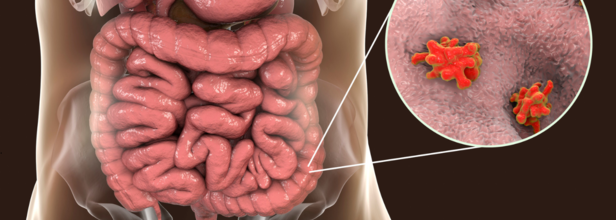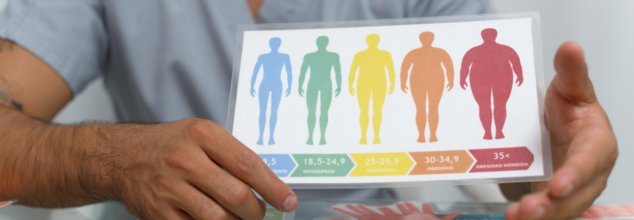- Health Conditions A-Z
- Health & Wellness
- Nutrition
- Fitness
- Health News
- Ayurveda
- Videos
- Medicine A-Z
- Parenting
- Web Stories
Dysentery Cases On Rise Among Unhoused People In Oregon

Credits: Canva
Amid all the health developments happening in the US and the different diseases and infections spreading across the country, Oregon has reported a rise in dysentery. The cases are at all time high in the Portland area. In January, the health officials reported 40 cases of highly contagious bacterial infection in Multnomah County. This is where Portland is located. The Multnomah County Health Department officials have linked the rise in dysentery cases to the number of people experiencing homelessness. From 2015, the cases of dysentery has been high among the unhoused people in Portland.
What Is Dysentery?
According to the US Centers for Disease Control and Prevention (CDC) a bacteria as been spreading in the Portland area called the shigellosis. It is a highly contagious infection brought on by one of the four species of shigella bacteria. This is what leads to dysentery which is leads to severe diarrhea with blood in it. It is caused by similar types of amoeba or bacteria.
How Does The Virus Spread?
The shigella bacteria spreads through things which have been contaminated with infected fecal matter, it could be water, food, surfaces or objects. It can also spread from person to person, which includes sexual activity. For instance, anyone can get sick after swallowing contaminated water while swimming, or after changing the diaper of a sick child and then touching the food without washing hands.
How Can You Reduce The Chances Of Dysentery?
As per CDC, regular hand-washing before cooking, eating and participating in any sexual activity can reduce your chance of contracting dysentery. CDC also recommends to wash your hands properly after you use the bathroom, change the diaper or clean up after someone who used the bathroom. It is important to pay attention to the cleanliness, as each year, there are around 450,000 shigellosis cases, notes CDC.
As of now, there are 40 cases in the Multnomah County and cases have been on rice since 2012. More than 150 cases were reported in 2024, as compared with 19 in 2017.
As per the data, there are around 22,875 unhoused people in Oregon, and 11,153 in Multnomah County alone. The reason is that housing provides access to hygiene and sanitation, which unhoused people lack, thus the cases have gone up. The health department said, "housing is related to nearly all aspects of health, including infectious diseases. Lacking housing creates a context that can increase the risk of multiple kinds of infectious disease. When you do not have housing, it is harder to prevent infectious disease and harder to access care to treat disease compared to if you are housed."
Amanda Risser, a senior medical director for addiction medicine and primary care at Central City Concern, a Portland-based health-care and housing services provider told the Washington Post, "We do not have public bathrooms. We do not have access to hand-washing stations, and people aren't able to always find a place to poop where their feces is contained."
What Are The Symptoms Of Dysentery?
Symptoms include:
- Fever
- Fatigue
- Stomach Pain
- Diarrhea
- Blood in stool for more than three days
What's The Confusion! Why Most Women Don’t Know When To Start Mammogram Screenings?

Credits: Canva
Breast cancer is one of the most treatable cancers when caught early. Yet, a significant number of women remain unclear about one of the most crucial tools for early detection: the mammogram. A new survey by the Annenberg Public Policy Center (APPC) reveals just how persistent and widespread the confusion is over when women should start getting screened. Despite updated national guidelines recommending mammograms beginning at age 40, nearly half of the adults surveyed in the US are either misinformed or confused.
The US Preventive Services Task Force (USPSTF) issued a revised recommendation in April 2024, advising that women at average risk of breast cancer begin screening mammograms every other year starting at age 40. This update rolled back an earlier guideline that suggested beginning at age 50, a shift that aligns more closely with what other medical bodies have long recommended.
The American Cancer Society, for instance, has consistently recommended that women aged 40 to 44 have the option to begin annual screening, with stronger guidance to start annually from age 45. By age 55, women can shift to screenings every other year.
But with a history of back-and-forth on these guidelines, public understanding hasn’t caught up.
"Confusion can arise when medical guidance about detection or treatment changes," said Kathleen Hall Jamieson, director of the APPC. “Our data suggest that the recommendation that such screening ordinarily start at 40 years old is not yet widely enough known.”
The APPC’s April 2024 survey sampled over 1,600 U.S. adults. The results were telling:
- Only 49% correctly identified age 40 as the right age to begin biennial mammograms for women at average risk.
- A notable 10% said screenings should begin at age 20, while 21% selected age 30. 8% said 50, and 11% admitted they were unsure.
Even more telling: this level of awareness remained unchanged from a previous survey conducted before the updated guidelines were published. So while the medical advice evolved, public understanding stood still.
Is Misinformation Creating Confusion?
Women aged 40–49 were the most informed demographic in the survey—72% of them knew screenings should begin at 40. But awareness dropped significantly among younger groups. Only 37% of women aged 18–29 knew the correct age to begin mammograms and a concerning 27% of that group mistakenly thought the correct age was 30, while 16% didn’t know at all.
This gap in understanding matters because younger women especially those with family history or genetic predisposition, may need to start even earlier.
What Are Mammograms?
A mammogram is a low-dose X-ray that captures detailed images of breast tissue, capable of identifying cancers before any physical symptoms appear.
In women with a BRCA1 or BRCA2 gene mutation who are referred to as "high risk" or with a history of radiation to the chest between ages 10 and 30, screening may start as early as age 30 and include annual breast MRIs alongside mammograms.
Modern technology has made the process quicker and less painful. Better compression paddles, 3D mammograms, and AI-assisted readings now reduce both discomfort and the chance of error.
Despite technological improvements, mammograms are not infallible. Their accuracy ranges between 85–90%, and performance can dip in women with dense breast tissue.
Contrast-enhanced digital mammography (CEDM) is another newer innovation helping radiologists identify tricky cases. The integration of artificial intelligence is also streamlining diagnostic accuracy.
Does 'Abnormal' Mammogram Mean Cancer?
An abnormal mammogram result doesn’t necessarily mean breast cancer. It simply means something unusual has been spotted and warrants further testing, which could include a breast ultrasound, MRI, or even a biopsy.
In the US, follow-up care is typically swift, with guidelines in place to ensure patients are informed and supported. However, disparities in healthcare access especially for uninsured or not populations still persist.
The APPC survey’s findings highlight a deeper issue, how public health communication is struggling to keep up with shifting medical guidelines. When official recommendations change, the burden of clarity shouldn’t fall solely on the individual. It requires coordinated messaging across healthcare providers, public health agencies, insurers, and the media.
While mammograms are widely available in the U.S., access isn’t always equitable. Low-income communities and communities of color often face hurdles ranging from cost and insurance barriers to logistical challenges like transportation or time off work.
Breast cancer remains one of the leading causes of cancer death among women. Early detection significantly improves outcomes, but only if women are aware and empowered to begin screening at the appropriate time.
If you're approaching 40, talk to your doctor about when to begin screening especially if you have additional risk factors. Don’t wait for symptoms to show up.
From ADHD To Burnout: Why Modern Life Is Making You Sleepless, Anxious And Insomniac

Credits: Canva
Your struggle to fall asleep, stay asleep, or wake up rested? It’s not just on you. And it never really has been. For centuries, sleep has been a fragile and complicated process. Historically, it took place in overcrowded, uncomfortable homes, alongside families, fire smoke, bugs, animals, and the unpredictable dangers of the night. In those times, people prayed for safety more than they prayed for dreams.
Fast forward to today — temperature-controlled bedrooms, memory foam mattresses, sleep masks, blackout curtains — and yet, millions are still wide awake at 3 AM, staring at the ceiling, wondering what’s broken.
It’s not just about your mattress or screen time. Your body isn’t failing you. It’s that the world you live in is making rest harder than it should be.
In 2020, over 14% of adults in the US reported struggling to fall asleep on most days, according to the National Health Interview Survey. About 12% have been diagnosed with chronic insomnia.
A third of American adults don’t get the recommended seven hours of sleep per night. And that lack of rest isn’t distributed equally: Native Hawaiian, Pacific Islander, and Black adults, along with those earning under $15,000 a year, are the most sleep-deprived.
What this really means is: sleep loss isn’t just a personal health issue. It’s a socioeconomic one.
You’re Not Lazy — The System Isn’t Built for Rest
We live in a society that glorifies hustle, devalues downtime, and equates sleep with laziness. We’re constantly connected, bombarded with notifications, and working longer hours — even when we're off the clock.
And then there's revenge bedtime procrastination — the habit of staying up late because it’s the only time you have for yourself. We scroll through emotionally charged or overstimulating content on our phones, even though we know it's sabotaging our sleep. We drink coffee too late. We binge-watch one more episode. We use alcohol to unwind, which only fragments sleep more.
Ironically, even the wellness-obsessed are losing sleep trying to perfect it — tracking every breath, wearing sleep rings, taping their mouths shut, and obsessing over micro-wakeups. Experts say this hyper-focus on sleep performance can actually heighten anxiety and worsen insomnia.
The truth is, many factors that destroy your sleep are beyond your control.
Shift workers — who make up 20% of the US labor force — have sleep cycles dictated by employers, not biology. Irregular schedules disrupt circadian rhythms and increase the risk of sleep disorders. Studies show that people of color are more likely to work alternating shifts, compounding their sleep challenges.
Lack of basic sleep-friendly infrastructure is another major barrier. People living in noisy, polluted, or unsafe neighborhoods — often low-income communities — face chronic sleep disruptions. Bright street lights, traffic noise, subpar housing, no access to air conditioning or heating — these all add up.
And then there’s the toll of racism and discrimination. Research shows that the stress from daily microaggressions and systemic injustice has a measurable impact on sleep quality and duration.
For many, sleep is not just elusive — it’s systematically denied.
Is Parenting and Caregiving Fuelling The Quiet Sleep Crisis?
Caregivers are among the most sleep-deprived populations. Babies, toddlers, aging parents — their needs don’t clock out at night. Sleep training might work for infants, but there's no such system for grown-up responsibilities.
If you're a new parent or a caregiver running on fumes, advice like “just wind down before bed” rings hollow. For people in this group, it’s not about willpower or habits — it's about survival.
Now add neurodivergence to the mix. A new study in BMJ Mental Health finds that adults with higher ADHD traits are significantly more likely to report insomnia, low sleep quality, and — unsurprisingly — a lower quality of life.
The research suggests that insomnia may be the link between ADHD symptoms and reduced life satisfaction. And while ADHD and insomnia both independently affect mood and functioning, their overlap is a major red flag.
The traditional treatment for one often ignores the other. Experts now advocate for targeted sleep therapies like Cognitive Behavioral Therapy for Insomnia (CBT-I) or Sleep Restriction Therapy to improve both sleep and daily functioning in adults with ADHD traits.
How Can You Sleep Better?
First, stop blaming yourself. Instead of focusing solely on sleep hygiene tips like cool rooms and no screens, try identifying what’s really keeping you up. Is it your work schedule? Your housing situation? Noise? Anxiety? All of the above?
If possible, consult a sleep medicine specialist to rule out disorders like insomnia, apnea, or circadian rhythm disruptions. If therapy is an option, CBT-I has proven effective for many.
For those dealing with unavoidable stressors — think shift work, noisy neighborhoods, caring for kids — small tools may help. White noise machines, blackout curtains, cooling fans, sleep earplugs. They’re not perfect, but they can create small windows of peace.
The goal isn’t eight perfect hours. It’s about carving out enough restorative rest — wherever and however possible — to function and feel human.
Sleep isn’t optional. It’s biological. Your body wants to rest. Your brain needs it. And even though society isn’t built to support that, the rhythm is still there — pulsing under the noise, waiting to be reclaimed.
So, maybe tonight, instead of battling the night like an enemy, trust your body. Dim the lights, breathe and let sleep come — if not easily, then at least without shame because the struggle to sleep isn’t yours alone.
Disclaimer: This article may include interpretations of research, and commentary that reflect individual or editorial perspectives. It is intended for informational purposes only and should not be considered a substitute for professional medical advice
BMI Calculators Cannot Predict Your Risk Of Death - Which Metric Can We Use?

(Credit-Canva)
Health is not linear for everyone. Many people have skewed perception about health; they think a person who is thin is naturally healthy, while a person who is overweight is inherently unhealthy.
A recent study published in the Annals of Family Medicine suggests that BMI, a measure of body fat based on height and weight, is a poor predictor of a person's risk of death. Instead, the study highlights body fat percentage (BF%) as a more effective and easily assessed measurement during routine checkups.
Shortcomings of BMI
Doctors have traditionally used BMI to check a person's fat, bone, and muscle health, especially since body composition is linked to a higher risk of conditions like type 2 diabetes and heart disease. BMI is calculated by dividing a person's weight by their height squared.
While a higher BMI can sometimes suggest a greater chance of developing certain health problems, there's growing evidence that it's an imperfect measure. It doesn't consider important factors like a person's age, biological sex, or how their fat and muscle are distributed.
For example, top athletes often have a lot of muscle, which can give them a high BMI. Even though these athletes are very healthy, focusing only on their BMI might incorrectly label them as having obesity.
On the other hand, some people with a "normal" BMI might still be at a higher risk for conditions like diabetes, high blood pressure, and fatty liver disease. These individuals are sometimes referred to as having "normal weight obesity" or, in simpler terms, being "skinny fat."
Why Body Fat Percentage Might Be Superior
With the limitations of BMI in mind, researchers looked into how strongly BMI is connected to the risk of death. They also wanted to see if body fat percentage, which they described as "an easy, reliable, and inexpensive measure," could do a better job of predicting this risk.
The research team analyzed health information from thousands of adults. This data included height, weight, waist size, and body fat percentage. They calculated BMI for these individuals and then tracked who passed away over many years. After considering various factors, the scientists made some key discoveries:
There was no significant link between having a BMI categorized as obese (meaning a BMI of 25 or higher) and a greater risk of dying from any cause when compared to those with a "healthy" BMI.
Body fat percentage, however, provided clear insights into mortality risk. Individuals with a high body fat percentage (27% or more for men and 44% or more for women) were significantly more likely to die from any cause.
Waist size was less accurate than body fat percentage but still showed some connection to a higher risk of death.
The Future of Health Assessments
The study suggests that directly measuring body fat percentage, which is relatively inexpensive and easy to do in a doctor's office, is better at predicting future mortality risk than using BMI.
This doesn't mean doctors should stop using BMI entirely. It can still be a simple starting point to help determine if a patient needs to lose weight or gain muscle to prevent chronic diseases. But it should be seen as just that—"an easy first step."
Ideally, other measurements should also be taken. The more information doctors have—including BMI, waist size, body fat, blood pressure, and cholesterol—the more complete a picture they'll have of a patient's health. Modern devices can measure body fat percentage quickly, often in under a minute. It's hoped that more doctors will start using body fat percentage measurements, as a direct measure of body fat can be a valuable tool for preventing disease.
© 2024 Bennett, Coleman & Company Limited

